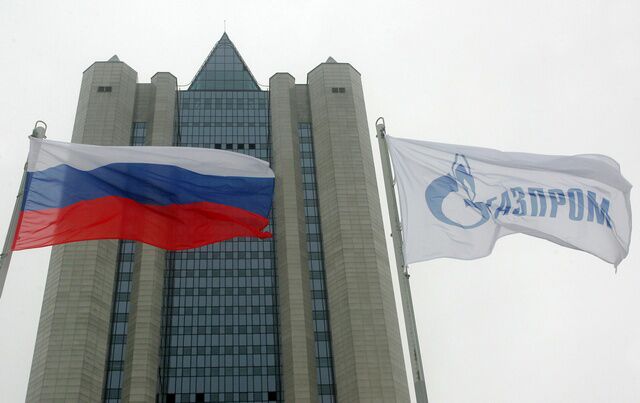
Gazprom and the Return of the Russian Empire
The Empire Strikes Back might be the name Lucasfilm, Ltd., would give to Russian policy these days. It wasn’t but 15 years ago when the Communist Death Star that was the Soviet Union imploded, sending cheers throughout the free world.
Sure that the Soviet Union’s fall meant the rise of democracy and capitalism in the behemoth nation, Francis Fukuyama proclaimed “the end of history.”
But now we see a return to the same imperial majesty that Russian “Republic” has historically held. “Under Putin’s stewardship, Russia is gradually putting the Kremlin in control of everything that matters: energy, the economy, politics and the media,” writes the Chicago Tribune’s Alex Rodriguez. “Last year, Russian authorities engineered takeovers and deals that gave the state partial or complete control in some of the country’s most lucrative enterprises. The most significant of those deals involved the acquisition of Russian oil major Sibneft by state-owned Gazprom, the world’s largest natural gas producer.”
Gazprom even bought one of Russia’s largest newspapers last June, not to mention its acquisition of former German Chancellor Gerhard Schröder (he is now chairmain of a major Gazprom-led pipeline project).
The monopoly has also been eyeing energy deals that will help Moscow regain control of former Soviet states like Georgia, Armenia and Uzbekistan. There is a pipeline deal with Germany, and talks of one with Greece.
Now Gazprom’s insatiable appetite for takeovers and acquisitions has it considering bids even further from home—there was one rumor, later denied, that it wanted to buy Scottish Power; now come reports that it is interested in the UK’s largest energy supplier, Centrica.
The Associated Press stated, paraphrasing Gazprom‘s ceo: “Gazprom would like to control about 20 percent of the British gas market.” Centrica’s shares have jumped 30 percent on the London Stock Exchange since the Gazprom official said on January 18, “The issue is being analyzed and is under consideration.”
Russia’s return to relevance is largely attributable to its vast energy supply. We live in a world with decreasing amounts of oil and natural gas. The world’s most powerful nation gets much of its oil from the world’s most precarious region. Other growing nations are jockeying for contracts in more stable parts of the world. Some are considering completely different forms of energy—giving us a frightening familiarity with and callousness to the phrase “nuclear power.” Add to that, the world’s fourth-largest supplier of oil has now been reported to the United Nations Security Council. As far as stability in the energy market, things don’t look good. In fact, we are shaping up for a resource war of the ages.
And where does reborn Russia fit in?
Whether Russia will take over a British company is largely irrelevant. The mere consideration of the idea shows the peril that once self-sufficient nations like Britain are in—how crown jewels like Centrica are being lost as resources are lapped up in an energy-hungry world.
Still yet, Russia, a nation with plenty of oil and gas deposits, will become more bold and defiant in its foreign policy. Remember when Moscow unilaterally and audaciously decided that Ukraine—and by extension the rest of Europe—didn’t deserve its energy supply for those few brisk days in January?
Gazprom’s—and Russia’s—growing sphere of influence certainly will cause concern in Europe, as Russia’s strength historically has just before full-scale war broke out.
Watch for Russia’s growing preponderance to act as a catalyst for greater change in world politics. Europe will be driven to unite. By forming alliances with Iran and other nations hostile to America, Russia will hijack American interests and handicap U.S. foreign policy. Russian oil and gas will continue to fuel the rise of China.
A galactic struggle lies just ahead of us. (For more on this, see the special report coming in the Trumpet’s March 2006 print edition.)
